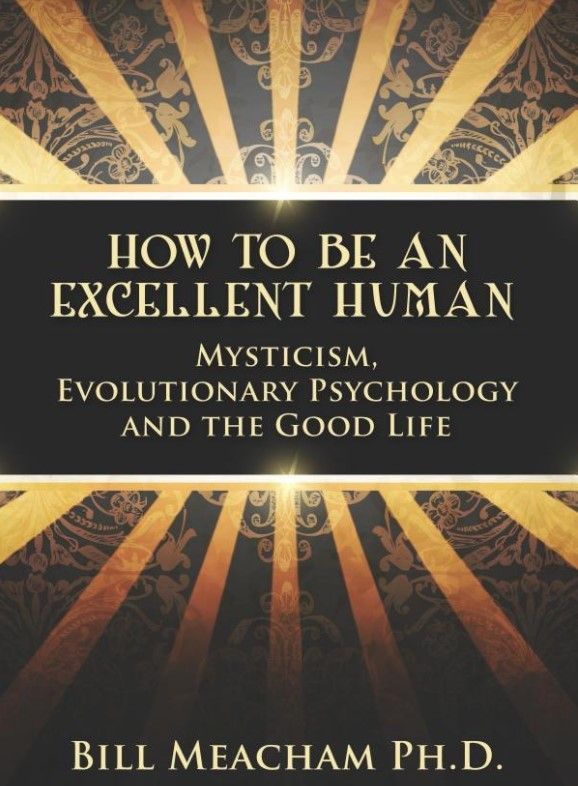Self After Death
This essay continues my earlier “Fearing Death“. There I explored how different assumptions as to whether there is life after the physical body dies have led thinkers in different directions. Here I explore further the implications of the idea of an afterlife. It brings up an interesting philosophical question, the nature of personal identity.
We do not need to affirm belief in an afterlife to consider the idea; instead, we can look at it as a thought experiment. If you did live on in some form after the physical body dies, how would you know that you are you? All this is speculative, of course, but apparently, the transition from one form of existence, the physical, to another, whatever that may be, involves shedding layers of what we might call our self. The more that is shed, the closer the remainder would be to the essence of selfhood.
The layers I have in mind were delineated nicely by William James in his monumental Principles of Psychology(1896). He contrasts two senses of the term “self,” the empirical self and the pure ego.[1] The empirical self comprises everything that each of us can be conscious of and call “me.” The pure ego is what is conscious of all those things. In this thought experiment, I focus only on the empirical self. Psychological research into the workings of the brain, the neurological substrates of perception and thought and the like has advanced greatly since James’ time, but his broad categories of selfhood are still quite applicable. There are three aspects to the empirical self, he says: the material, the social and what he calls the “spiritual,” which nowadays we should rather call the mental or psychological.[2]
The material self is our body. Each of us is a physical thing separate from other physical things. If someone asks where we are, the answer is where our physical body is located. If someone asks who ate the cookies, the culprit, if honest, says “I did,” meaning that his (or her or their) body physically ingested them. In such cases we identify ourselves with our body; that is, we think of ourselves as our body.
The social self is similar but in the interpersonal realm rather than the physical. Each of us appears to and is known by other people. Insofar as we have an idea of how we appear, we can think of ourselves as the person that others know us as. In each relationship or in each social situation we have a persona or public personality; this is what James calls the social self. He says “A [person’s] Social Self is the recognition which he [or she or they] gets from his [or her or their] mates.”[3]
Finally, James speaks of the spiritual self, by which he means “[one’s] inner or subjective being, [one’s] psychic faculties or dispositions.”[4] This use of the term “spiritual” is a bit archaic; nowadays we would say “mental” or “psychological.” A better term might be “subjective self.”
With these categories in mind, let’s consider what might happen to you at the time of death. You would be removed from one world and inserted into another. I suppose it would be a bit like going through the transporter in Star Trek, in which one is beamed from one place to another instantaneously. Your surroundings would change, and you would find yourself all of a sudden someplace else.
But there is an obvious difference: you wouldn’t have a body. Nothing that has mass would accompany you to the afterlife. In Star Trek, your whole body is transported and you with it; but in the moment of death, the physical body dies and is left behind. You would not have the bodily feelings that form a large part of your sense of self as a continuous entity. You might have memories and anticipations of such feelings, but over time your memories would fade and your anticipations, diminish. For those who have an emotional attachment, perhaps pride, in their body, this might come as a shock. For those who lived their final days in pain, it might be quite a relief. But in any case, what James calls the material self would be gone, and you could not use it to know that you are you.
But you would be someplace; you would have a world surrounding you. How could this be? By definition in this thought experiment, the physical world is left behind. The answer is that your world would not be physical, but mental. It would be rather like a dream or a computer simulation or a virtual reality. And in this world, you would most likely find other people. Your social self would survive.
Your sense of who you are depends on how people treat you. If they treat you as the same person over time, then you take yourself to be that person. In our thought experiment, we can assume that other people will be there, so you would have a sense of yourself as social. But what specifically shall we assume? Different religions paint different pictures. You might be with people you know or with people you don’t. You might be with angels. Or demons. You might be in a paradise or hell or some kind of purgatory in between. The story is indeterminate; it could well be different for each person. (If you want more detail, please feel free to fill in here what makes sense to you.) Instead of positing specific scenarios, we can consider the structural characteristics of such a world.
One such characteristic is that the world, being something like a simulated virtual reality, would be formed by the minds of each of its participants. You would be living in a sort of shared hallucination. So long as everyone agrees on its features, the world would be stable. But you need not agree. You could exert some control over that world. The physical world has a certain stubbornness, a resistance to change. You can’t just make it different by wishing it so. But the mental world of the afterlife, we can assume, would be more mutable, just as your thoughts and imagination are now. If you have some presence of mind and find yourself somewhere you don’t want to be, you might be able to change it. (The techniques for acquiring such presence of mind and making such changes are taught in various wisdom traditions, but discussing them would take us too far away from our thought experiment.) If this assumption is correct, then a sense of yourself as an agent would endure. You would be an agent with respect to your surroundings by having some mental control over them. But that control would be limited by the others around you, who have similar powers. As in the physical world, you would be an agent among other agents in a social world.
So, we assume for the sake of this thought experiment, you would find yourself in a social world. Many people fervently hope to be reunited with loved ones and friends who have passed on. If such hopes come to fruition, then the social self would remain; you would know yourself as you despite the lack of a body. But what if familiar people were nowhere to be found? In that case, what would remain of you would be less substantial. You would have only your characteristic way of relating to people, your personality; you would not have expectations of their knowing who you are and treating you as who you have been. But you would still be social.
What if there were no people at all? That scenario could very well be quite unpleasant, especially for extroverts. We evolved in tribes, dependent on others for aid; and they, in turn, were dependent on us (or rather, our ancestors). “Mutual dependence is key,” says ethologist Frans de Waal. “Human societies are support systems within which weakness does not automatically spell death.”[5] Banishment and solitary confinement are harsh punishments. If you were left completely alone, it might be terrifying.
But for others, the more introverted, it might not be a problem at all. For the sake of the thought experiment, let’s assume that you would not be in isolated hellish anguish, but only in a place with no people. Eventually, your social self would fade away. Your personas, the ways you present yourself to others, would be gone. The only thing left would be your subjective or psychological self.
That self includes lots of things: thoughts, feelings, emotions, moods, memories, anticipations, plans, regrets, theories, conjectures, faculties, dispositions and more. Most, if not all, of these, arise in relation to things and people external to us. As the physical and the interpersonal worlds fade away, so would most of the contents of your subjective self. Minute-to-minute incessant chatter would be silenced. Emotions would dissolve. You might run through favourite memories of what has passed and compulsive fantasies of what might have been, but after a time even these would become tiresome. Eventually, the only thing remaining would be your core attitude toward life (or afterlife). For some of us, that attitude might be calm curiosity or benevolent interest; for others, fear or anger or despair.
What this analysis suggests is that the fundamental nature of selfhood is the manner in which one relates to one’s world. At the core of selfhood, we do not find an enduring substantial thing like the Christian soul or the Hindu atman. Nor do we find a mere nothingness or void, as some interpretations of Buddhism and Taoism would have it. Instead, the core of selfhood is attitude, one’s fundamental approach to being in the world.
I think it best to end the thought experiment here. If we go any further, the self vanishes entirely. The result might be indistinguishable from death. Or it might be what the Buddhists call Nirvana, the extinguishing of the sense of a separate self into a state of happy quietude.[6] In either case, there is no need to fear it. What we can focus on instead is our manner of being in the here and now.
James, Principles of Psychology, Vol. I, chapter X, p. 291. ↩︎
Material in this section comes from James, Principles of Psychology, Vol. I, chapter X, and Psychology (Briefer Course), chapter XII. ↩︎
James, Principles of Psychology, Vol. I, chapter X, p. 293. ↩︎
Idem, p. 296. ↩︎
de Waal, Our Inner Ape, p. 187. ↩︎
Wikipedia, “Nirvana.” ↩︎
References
de Waal, Frans. Our Inner Ape. New York: Riverhead Books, 2005.
James, William. Psychology (Briefer Course). New York: Henry Holt and Company, 1892. Online publication https://www.gutenberg.org/files/55262/55262-h/55262-h.htm as of 19 January 2021.
James, William. The Principles of Psychology, Vol. I. New York: Henry Holt and Company, 1918. Online publication https://www.gutenberg.org/files/57628/57628-h/57628-h.htm as of 16 November 2020.
Wikipedia. “Nirvana.” Online publication https://en.wikipedia.org/wiki/Nirvana as of 17 April 2021.

How To Be An Excellent Human
Mysticism, Evolutionary Psychology and the Good Life by Bill Beacham, Ph.D.

